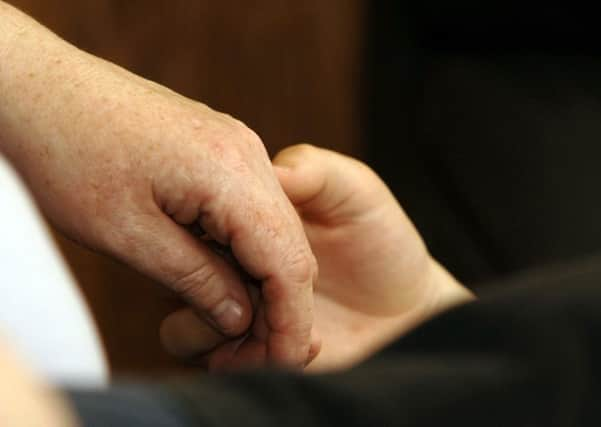Frances Simpson: Carers and cared for both have rights


Carers Rights Day last month marked a milestone in terms of how far the carers’ movement has come, but for families and friends of those struggling with mental ill-health, whose day-to-day lives are overshadowed by laws that detain people and restrict liberty, understanding their rights as carers is confounding and complex.
The Carers Recognition (and Services) Act in 1995 put carers on to the statute books in their own right for the first time recognising the importance of taking their views into account when making decisions about the care of an ill or disabled person. This was crucial early recognition of the central role family members played in supporting people in the community, though at the time it was thought to be so minimal as to be ineffective.
Advertisement
Hide AdAdvertisement
Hide AdFast forward to 2015 and the Carers Bill heralds much beefier rights for carers including that all-important right to direct support as a carer, no only recognising their need for services, but also the essential principle that carers have rights independent of the person they care for.
This new bill is welcomed on the whole with enthusiasm by carers and carers’ organisations, even though it isn’t perfect. But before we celebrate and move on, there are three basic issues we need to address to really understand what it means for carers to have rights.
The first is identifying carers and that starts with the word “carer” itself. We still support many people who say “I am not a carer, I am just a Mum, (or Dad, Sister, Friend…)” and so we are reminded that for most people, not just the term, but the concept of being a “carer” means nothing. If we could talk about “relatives’ rights” or “friends’ rights”, that might make more sense.
It is meaningless to know that carers have rights if you don’t know you are a carer. Somehow we need to help people make that transition from caring about to caring for – otherwise the new Bill will make no difference.
Identifying carers may be the first and biggest challenge to conferring rights. But the second major issue is informing carers of what those rights are – and this is not as straightforward as it seems. The new Bill captures a basic fundamental shift by recognising the independence and equality of both parties in a caring relationship for the first time, and this carer-specific legislation is the place to do that. However, carers have many rights in all sorts of situations and it is this complexity that professionals must be more aware of and ready to explain.
It is the world of mental health caring that this complexity is most evident as the people carers are caring for are often subject to legislation that greatly restricts their right to self-determination.
The Mental Health Act, Adults with Incapacity Act and even the Criminal Procedures Act all include rights that are relevant to those in caring roles, mainly concerning rights to information and levels of involvement in decision-making. For that tiny minority of families where relatives commit crimes whilst seriously unwell, there is the further complexity of contending with police procedures – a bewildering and alien world.
This raises the third and most critical issue about carers’ rights. There is no point in having rights if you have don’t know when they have been breached, and if you have no way of challenging the agencies who have breached them. When an adult son has been detained in hospital because he is ill, how do his parents know when to say “this is not right”? Carers rights, parents’ rights, their son’s rights – how can they possibly understand, particularly when in the midst of crisis?
Advertisement
Hide AdAdvertisement
Hide AdBeing able to fight for one’s rights when we are mistreated is surely fundamental to any right-based approach; but where do families start? How much time, energy and money are needed and how daunting is this?
This is why we are calling for a new and very specific right: the right to free, independent advocacy, specifically (initially at least) for carers of those being treated under the Mental Health Act. This is crucial to make rights matter. Without this vital capacity to challenge the statutory bodies when it all goes wrong, the new bill risks being empty rhetoric rather than an important instrument for change.
• Frances Simpson, CEO Support in Mind Scotland